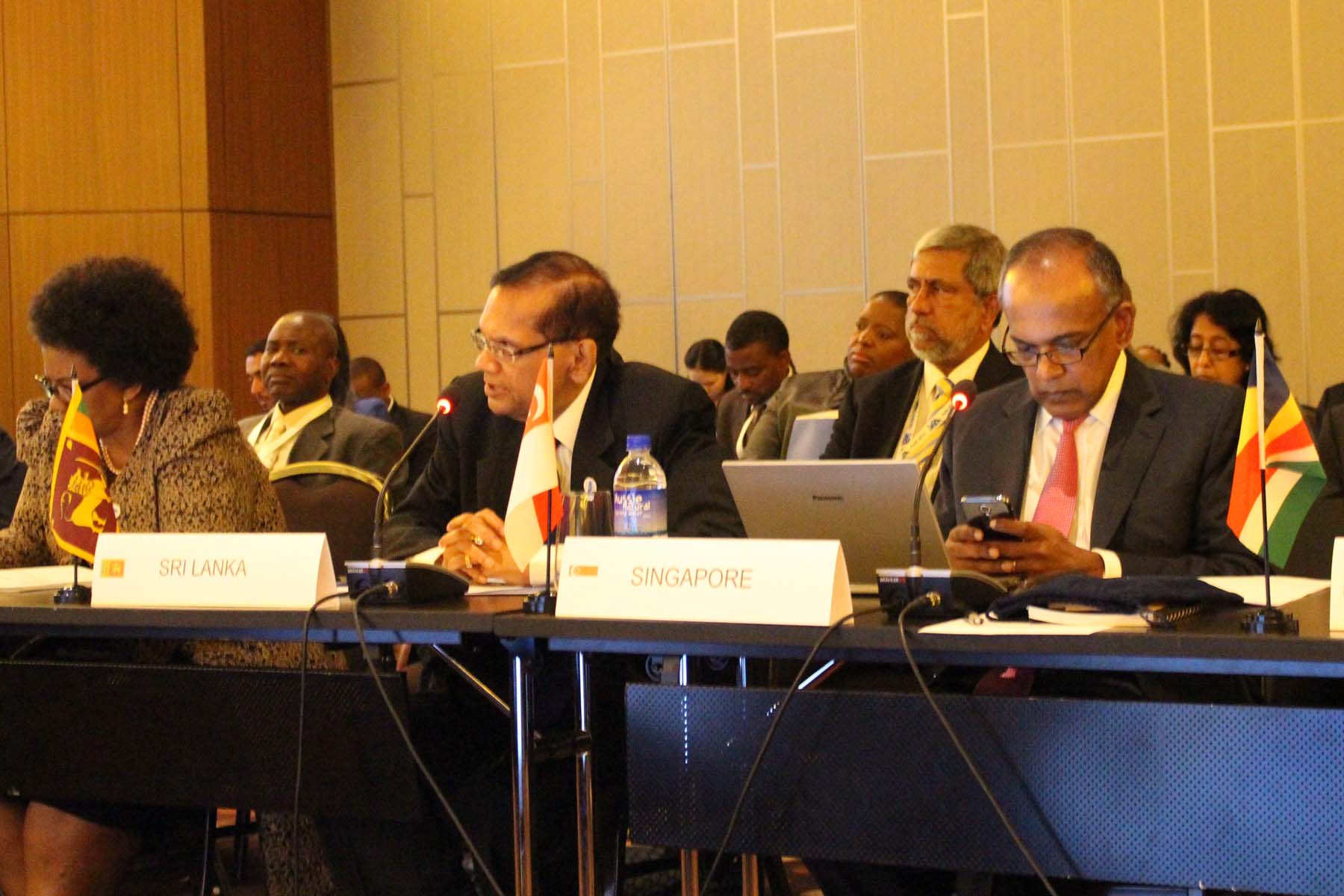
Professor G.L. Peiris, Minister of External Affairs, in his address at the Indian Ocean Rim Association Council of Ministers Meeting in Perth, Western Australia, described IORA as a unique organisation, encompassing nations across three continents, connecting over two and a half billion people and offering many opportunities for collaboration across numerous spheres of shared interest.

Professor G.L. Peiris, Minister of External Affairs, in his address at the Indian Ocean Rim Association Council of Ministers Meeting in Perth, Western Australia, described IORA as a unique organisation, encompassing nations across three continents, connecting over two and a half billion people and offering many opportunities for collaboration across numerous spheres of shared interest.
He said that the geographical location of Sri Lanka at the centre of the Indian Ocean straddling the main East – West shipping lane makes us an ideal location to be a gateway not only to the Indian sub-continent but to the whole Indian Ocean region.
Sri Lanka, he observed, is a nation that is fast emerging as an important location for global maritime security, shipping, trade and transshipment, linking Africa, Asia, the Middle East and Europe.
Minister Peiris continued: “In 2013, the Government created a legal framework to develop free ports and bonding facilities to build a Logistic Services Economy. This initiative has been supported by the newly built deep water port in Hambantota and by the expansion of the Colombo Port. The latter is now firmly established as the largest container port in South Asia and a gateway to the vast Indian sub-continent. The logistics industry and provision of services have made Sri Lanka an attractive destination to set up operations for numerous commercial ventures. With these developments, new aspirations of a Marina Economy are emerging, and Sri Lanka looks forward to sharing experiences and enhance mutually beneficial co-operation with the greater Indian Ocean region. Priorities in the country’s economic policy reflect a timely focus on conservation and management of ocean resources, the use of these resources in a systematic way over a continuing timeframe, with special emphasis on the environment, and having recourse to the blue economy as a fillip to leisure activities important for the development of tourism”.
He said that, as we seek to unleash the possibilities of a Blue Economy, it is imperative that the necessary economic, scientific and social considerations be fully analysed, and informed policy decisions made to ensure the sustainable and equitable use of the Indian Ocean. In this context, he described research as a pivotal necessity. He reiterated Sri Lanka’s commitment to establish a Centre of Excellence in Ocean Sciences and Environment.
Prof. Peiris particularly commended the efforts of the Chair, Foreign Minister Julie Bishop of Australia, to focus the attention of IORA on empowerment of women. He said: “In Sri Lanka, the government has enacted proactive policies that ensure women are equal and active partners in all spheres of political, economic and social activity”.
Referring to the cultural diversity of the region, which needs to be protected and developed, Prof. Peiris recalled that in May this year, Sri Lanka hosted an IORA Workshop on Heritage Management for experts from all Member States.
Ministry of External Affairs
Colombo
10 October 2014




